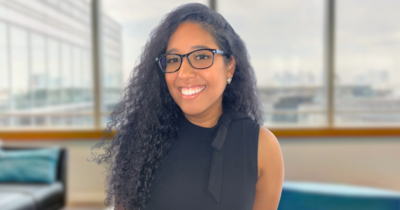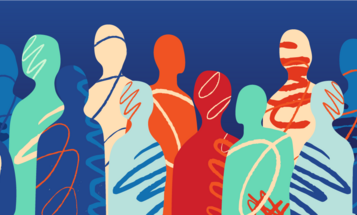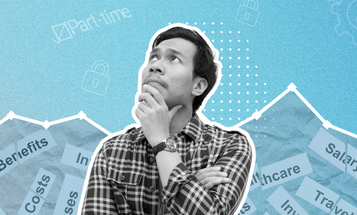
Meet Aklima, Chief of Programs & Strategy
From the streets of Brooklyn to the heart of voting rights litigation, Khondoker's journey is a testament to the power of personal experience in driving systemic change.

For Aklima Khondoker, the personal is not only political but professional.
For Aklima Khondoker, the personal is not only political but professional. As the new Chief of Programs and Strategy at Dēmos, she leverages deep experience as a voting rights lawyer and impact strategist on the frontlines of our democracy. Her work ensuring everyone, especially Black and brown communities, can make their voices heard at the ballot box is deeply rooted in Dēmos’ equity and justice core values.
She comes to Dēmos from The Carter Center, where she served as Senior Advisor for U.S. Programs. In that capacity, she developed long-term strategies to improve legal frameworks, electoral administration, and racial justice in the United States. Her work has been featured in outlets like The New York Times, TIME Magazine, and CNN. She has collaborated with organizations like the Brennan Center, Andrew Goodman Foundation, Human Rights Watch, and numerous national and Georgia-based groups.
But long before she was a legal powerhouse, the seeds of Khondoker’s professional calling were planted in the soil of 1980s Brooklyn, New York.
Khondoker’s personal origin story began at Kings County Hospital, a space she described as being “emblematic of the systemic issues of our country...under-resourced, understaffed, and underserved.” She came into the world at the Brooklyn hospital where patients and staff were from predominantly Black and brown communities living in the surrounding neighborhoods, but with no control over any of the decisions impacting the quality of care that the community receives. Her story is an immigrant story. “My mother is from Haiti. My father is from Bangladesh,” Khondoker explains. “They met in Brooklyn, New York, where else? These two people with broken English, with no shared language between them came together in one of the most linguistically diverse places in our nation.”
Watching her parents work to support their families and communities instilled the values that guide Khondoker’s work today.
Watching her parents work to support their families and communities instilled the values that guide Khondoker’s work today. Her family emphasized that “we are in this country because we believe in a better life. And it’s not just for us; it’s for the generations of our family that can't be here and the ones yet to come. Those are the people we work for." They are also the same people who are taught to believe that America will support a better life.
“This is the promise that America gives to people,” Khondoker says. “Come here, give me your tired, your poor, your weary, your homeless...everyone will be welcomed and led into the light of renewed hope. We believe these ideas are enshrined within our constitution, but they are not mandates that meet the expectations of our communities.”
That history, and that often unfulfilled promise, inspired Khondoker to begin her career in crisis counseling, supporting women experiencing domestic abuse. Her clients left abusive relationships, secured safe housing, and obtained educational and work opportunities for themselves and their children even when the deck was stacked against them. But she wanted to move from working on individual issues to driving systemic change for entire communities. She wanted to not only solve short-term problems, but to build sustainable pathways to economic mobility and civic power.
Khondoker decided a legal career was the answer—the key to creating sustainable systemic change for Black and brown communities. Despite being a diehard New Yorker, Khondoker followed the work to Georgia for law school. The state’s deep connections to civil rights history reaffirmed her decision.
Khondoker expanded ballot access and election accessibility during the 2020 elections, especially for Black and brown communities, too often the target of anti-voter laws.
After law school, As Georgia State Director at All Voting is Local, Khondoker expanded ballot access and election accessibility during the 2020 elections, especially for Black and brown communities, too often the target of anti-voter laws. She has also served as a Staff Attorney and the Senior Manager for the Voter Access Project at the ACLU of Georgia, a project she created to open pathways to the ballot through effective litigation, organizing, and advocacy.
Connecting with Dēmos through coalition projects and partnerships, she was impressed by Dēmos’ policy and litigation accomplishments and how the movement's needs always drove its body of work.
“I'm a community girl,” she emphasizes. “It's important to me to be within an institution that centers the people we seek to partner with. The ‘nothing about us without us’ principle is very important." As the Chief of Programs and Strategy, Khondoker will put that principle into action.




